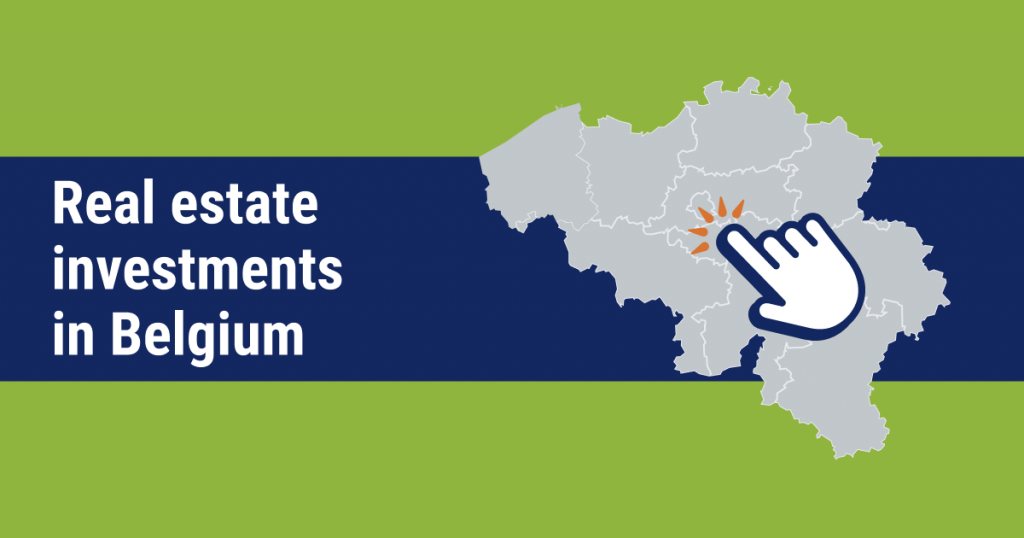Real Estate Investment in Belgium

In this guide, you will discover everything you need to know about investing in real estate in Belgium. Belgium is a country located in the heart of Europe that serves as a meeting point of cultures, languages and geopolitical influences. Whether it’s multicultural Brussels, historic Antwerp or charming Ghent, the real estate market reflects the nation’s diversity. In this article, we’ll explore the characteristics of the Belgian real estate market, types of available properties, key investment regions, bureaucratic framework and important details to consider before you invest.
- General Overview of the Local Market
- Common Property Types
- Notable Areas for Real Estate Activity
- What You Need to Know Before Investing in Belgian Real Estate
- Supporting Services Around the Property
- Summary
General Overview of the Local Market
Belgium is divided into three main regions: Flanders, Wallonia, and the multicultural Brussels region. Each region operates autonomously in terms of taxation, urban planning and real estate regulations, so it is important to understand their differences right from the start.
- Flanders: Found in the northern part of the country, Flanders is Dutch-speaking and its key cities are Antwerp, Ghent and Bruges.
- Wallonia: In the southern part of the country and French-speaking, Wallonia’s key cities are Namur, Liège and Mons.
- Brussels: Belgium’s capital city and a bilingual region, Brussels has great significance internationally as it is home to EU institutions and many diplomatic missions.
Common Property Types
The Belgian real estate market offers a wide variety of property types suitable for different purposes:
- Residential apartments: Found in renovated old buildings or new developments, mostly in major cities such as Brussels and Antwerp.
- Private houses: More common in suburbs and small towns, with various architectural styles ranging from modern to classic European.
- Commercial real estate: Includes offices, shops, light industrial buildings and logistics spaces. Usually located in industrial zones or near urban centres.
- Tourism-oriented properties: Covering holiday apartments, small guesthouses and hotels, found primarily in cities with high tourist traffic.
Notable Areas for Real Estate Activity
- Brussels: A highly diverse city, divided into districts with varying characters, from quiet, traditional neighbourhoods to modern, high-density areas.
- Antwerp: A major port city experiencing rapid development in areas near the historic centre.
- Ghent and Bruges: Picturesque cities and cultural and academic hubs that attract a wide range of people.
- Liège and Namur: Key regional centres in the south, offering easy access to transportation infrastructure.
What You Need to Know Before Investing in Belgian Real Estate
Bureaucracy and Property Laws
Real estate transactions in Belgium are regulated and monitored. First, a preliminary agreement (a compromis de vente or verkoopcompromis) must be signed, which is a legally binding commitment. Then, the final contract is signed in front of a Belgian notary. Be aware of processing times, associated taxes, registration fees, and additional costs, which vary by region.
Local Authorities
Each municipality has its own planning policies, and renovation or rezoning permits may differ. It’s essential to check in advance whether the property complies with local planning regulations or usage restrictions.
Language and Documentation
Belgium has three official languages, Dutch, French and German. Contracts are drawn up according to the region’s official language. It is recommended to use translation services or legal support if needed.
Transportation and Accessibility
One of the key advantages of Belgian real estate is its proximity to high-quality transportation infrastructure. The nation’s efficient rail network provides quick links between cities and easy access to neighbouring countries such as the Netherlands, Germany and France. Major cities also have well-developed road systems and metro networks.
Supporting Services Around the Property
When evaluating a property investment in Belgium, it’s important to consider the availability of nearby services, such as:
- Kindergartens, schools and universities.
- Shopping centres, parks and cultural sites.
- Public transportation and train access.
Summary
Investing in Belgian real estate requires an understanding of the country’s unique administrative structure, regional differences, property types and local bureaucracy. In addition to legal and technical aspects, it’s also essential to understand the local culture, lifestyle and decision-making processes.
Every investment journey demands planning, patience and consultation with local professionals, especially in a market as diverse as Belgium’s.
